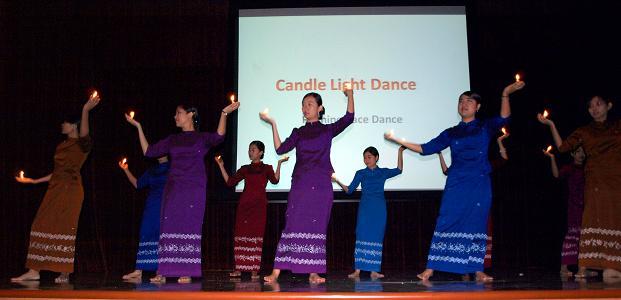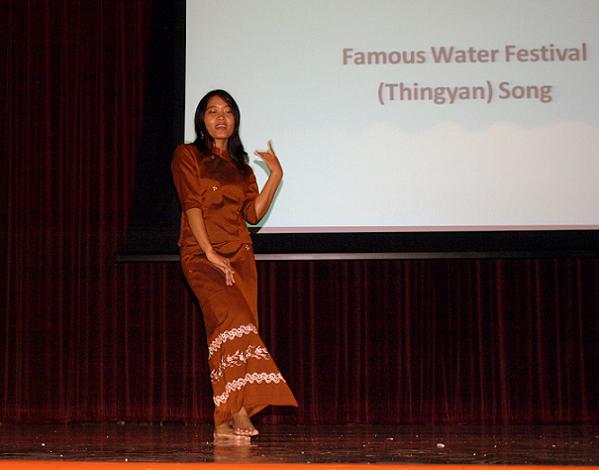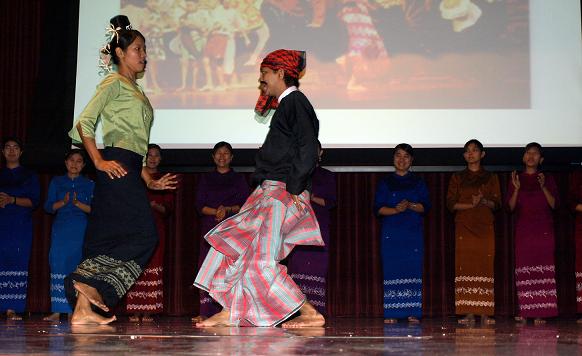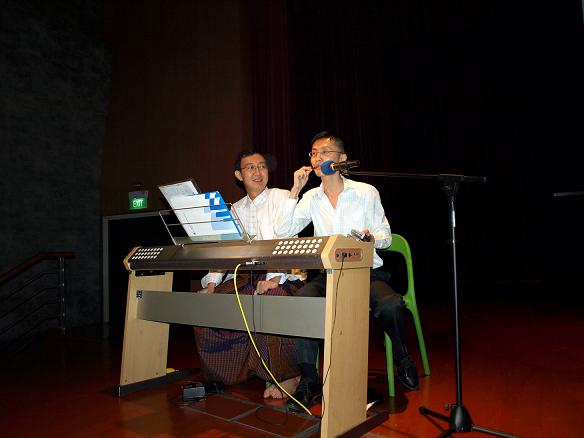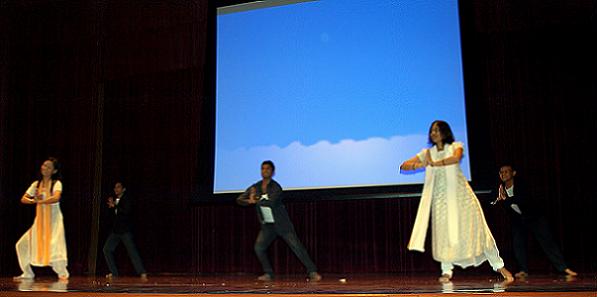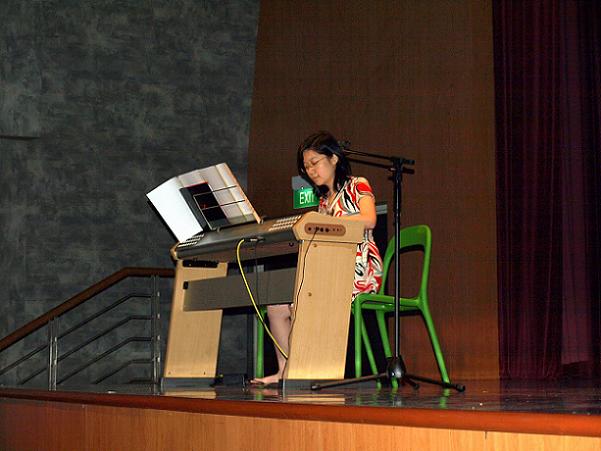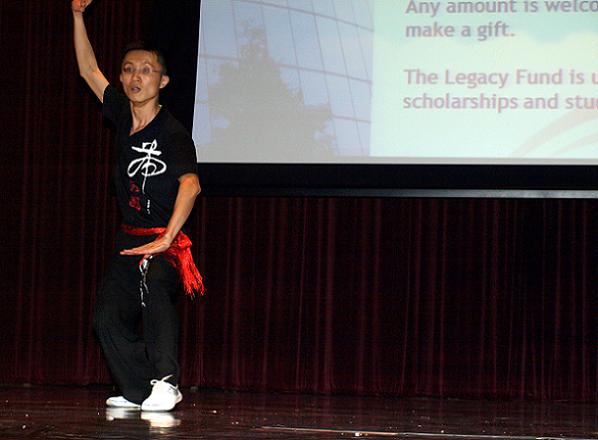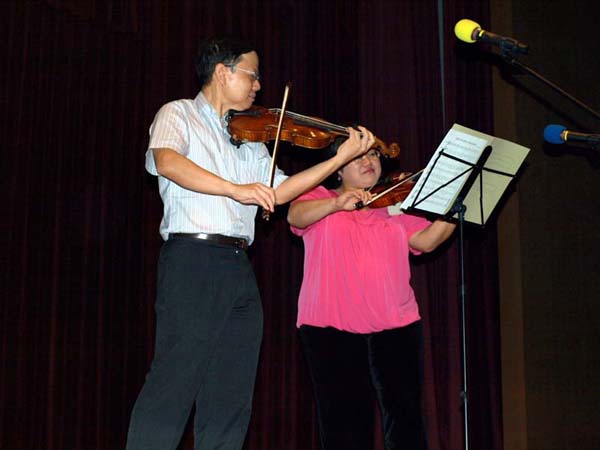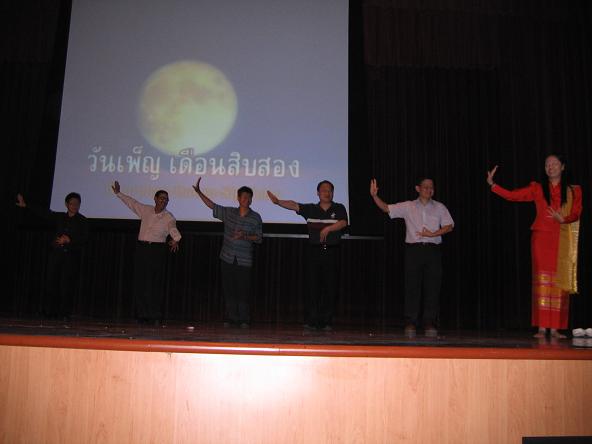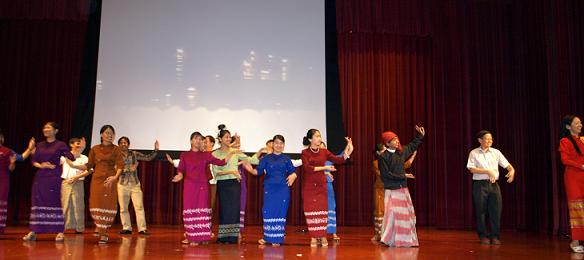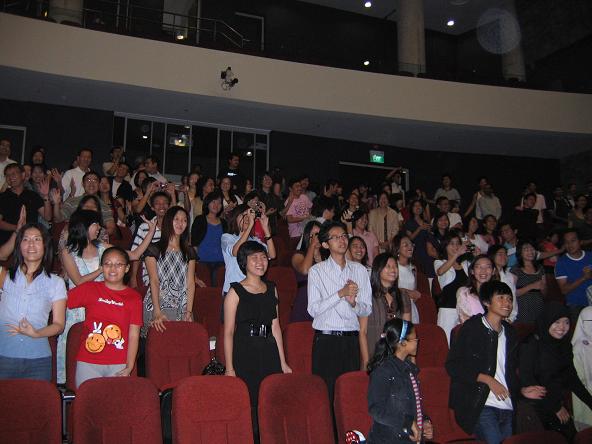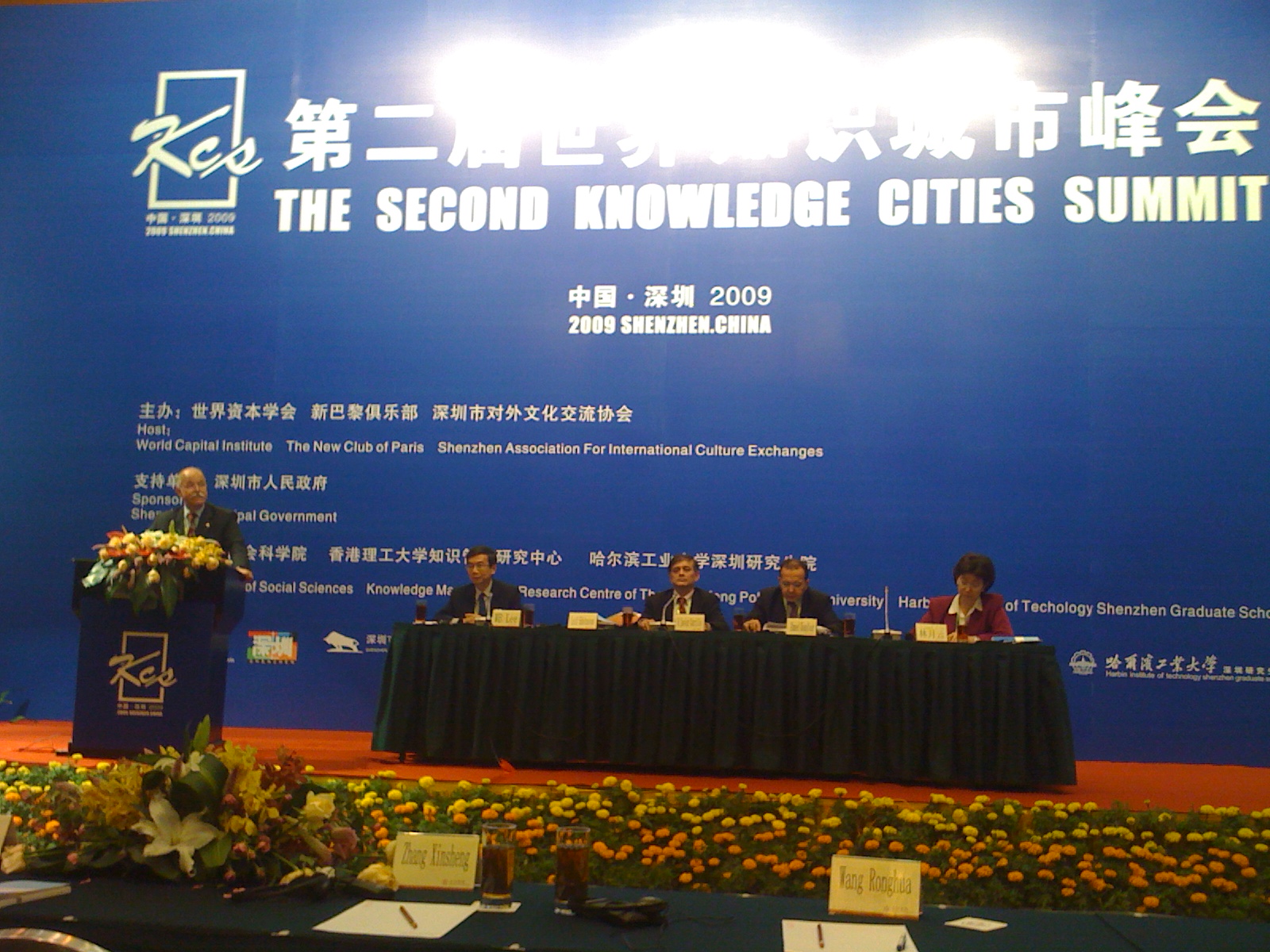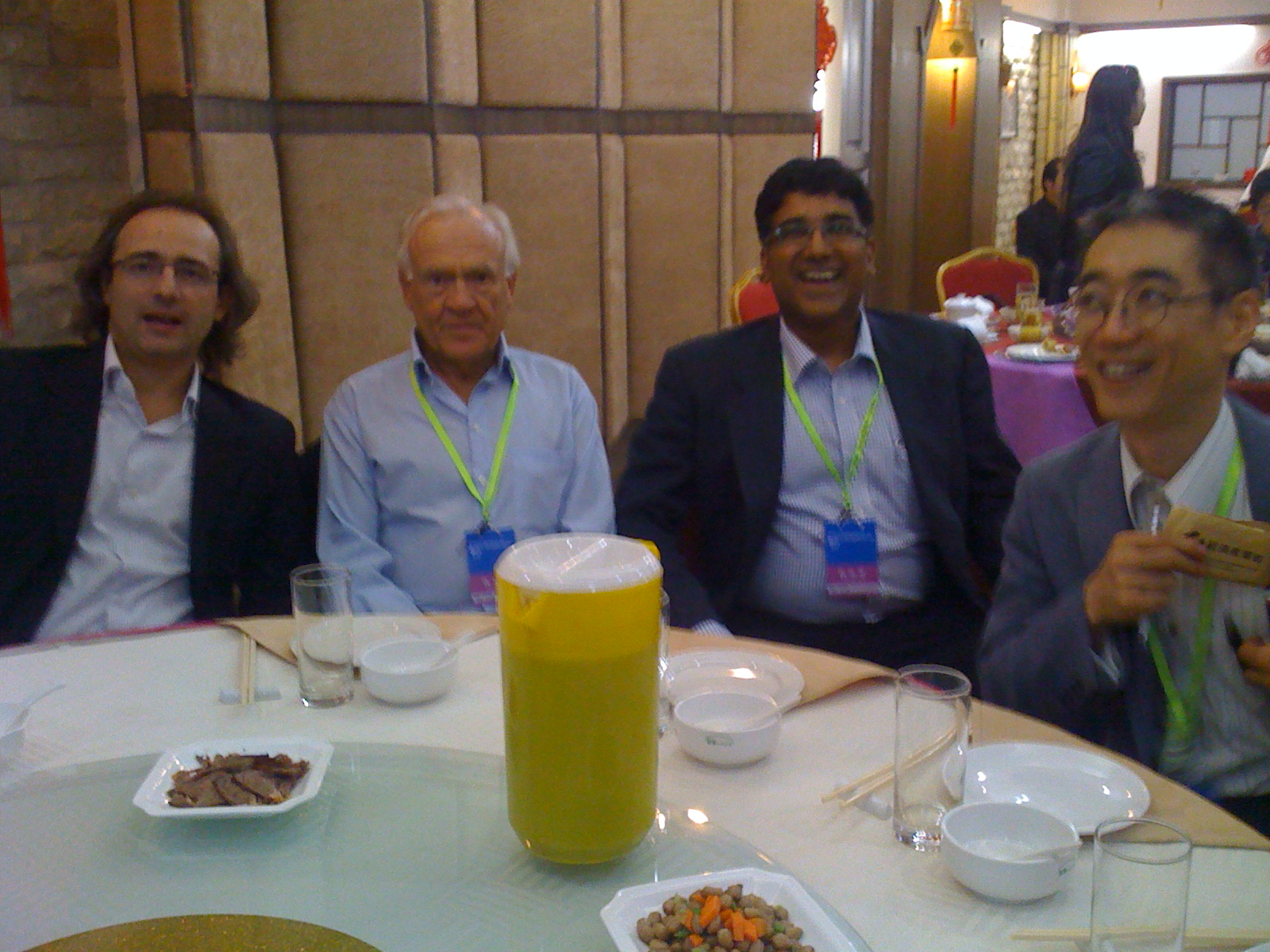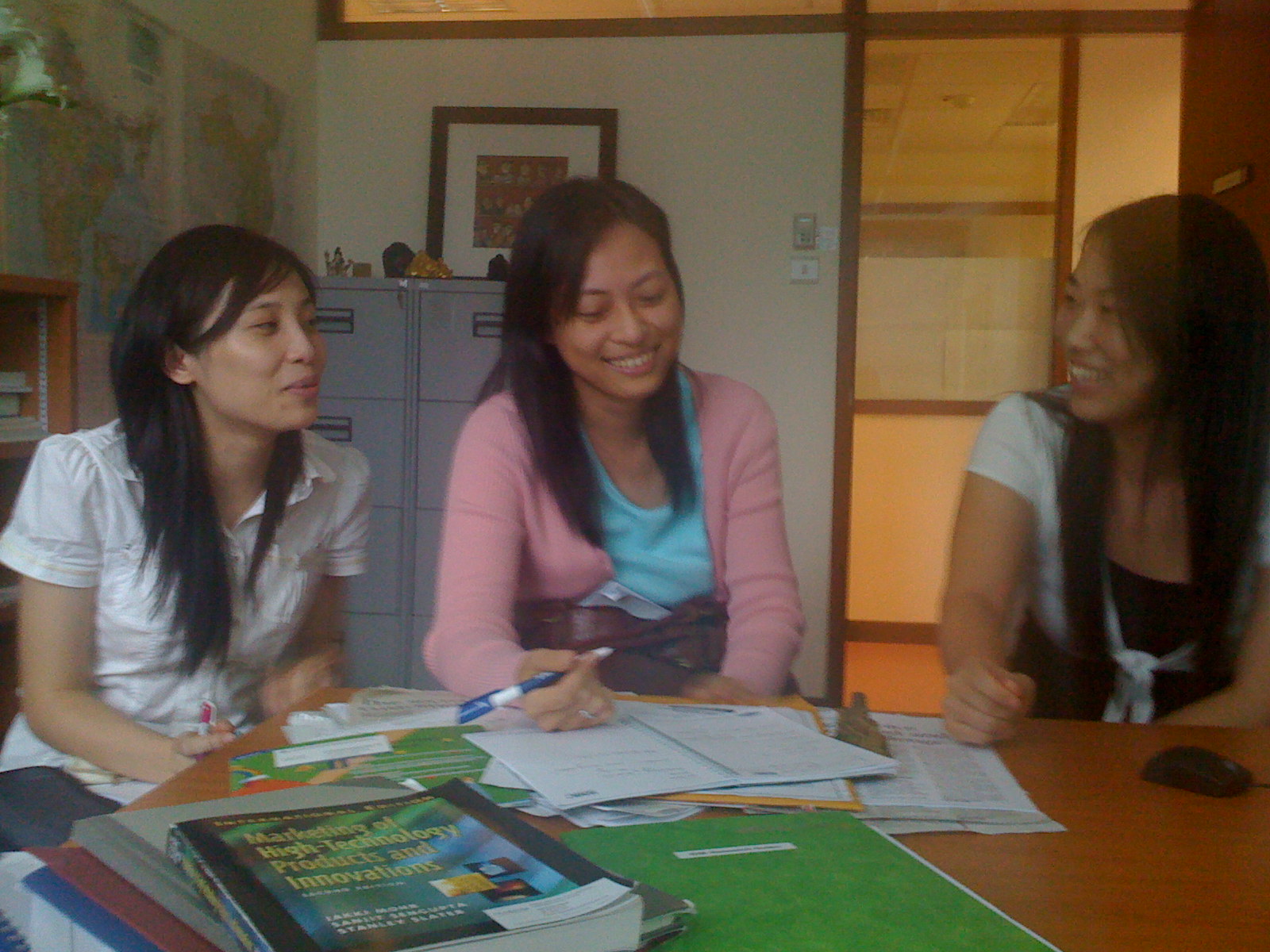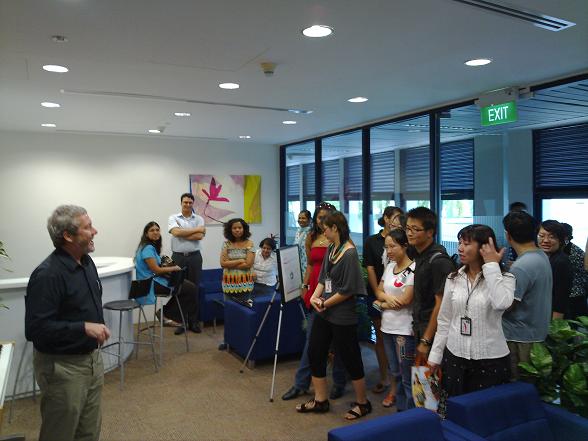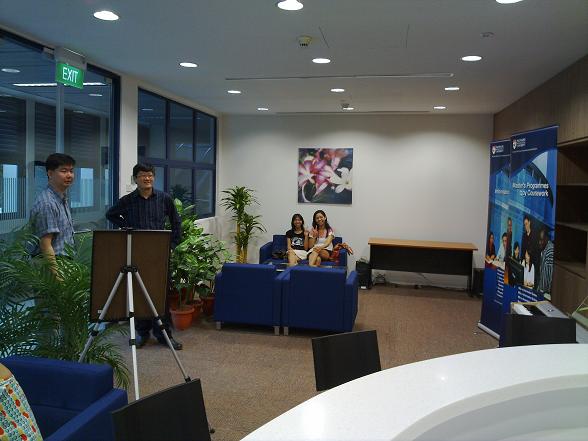Dr Higgins was on the DIS faculty from 1998 to 2001. She sends her greetings to her former students. This is what she has been doing since NTU:

Dr Susan Higgins
Dr. Khoo has asked that I write about my experiences after leaving NTU as a Lecturer in 2001. It was wonderful teaching in Singapore. The most rewarding events were the relationships formed with students and fellow faculty. When I first arrived in Singapore in November of 1998, Dr. Abdus Chaudhry met me and my daughter at the Changi International airport. The transcontinental flight with my 18 month old daughter was quite challenging, so we slept for a few days after arriving. Fortunately, Dr. Chaudhry had supplied our newcomer’s campus apartment kitchen with fruit, cereal and yogurt, and we did not have to go out right away. On our first day at the new flat, Mark Hepworth and his wife Joan brought over a box of dishes which they had received upon arriving in Singapore, and it became my job to hand them to the next family. Eve enjoyed attending Dover Court and was particularly fond of her kindergarten teacher, Anne Marie Walker. Dr. Beth Logan and Dr. Tom Hart also came to teach in Singapore as visiting professors. They had been my Ph.D. professors at Florida State University in Tallahassee, FL. Dr. Edna Reid, who travels to Singapore quite frequently, has kept in contact with us, and she and her husband own a home in Tucson, AZ where my mother lives.
I left NTU to take a job at Charles Sturt University in Wagga Wagga, NSW, Australia. http://www.csu.edu.au/ and began teaching in the Library and Information Studies program. Classes are taught entirely online for the LIS program, and have been for over twenty years. I taught children’s librarianship and information management. Packages were mailed to students with their assignments and recommended textbook and bibliography.
I enjoyed learning about Australia with students, staff and faculty, and I worked with Professor Ross Harvey, who is currently a visiting professor at Simmons College in Boston, and Professor Gaynor Eyre, now Head of Department at Aberwstwyth University. Dr. Eyre is an expert on reading and literacy in early childhood. http://www.dil.aber.ac.uk/en/staff.asp?a-z=true.
Dr. Khoo gave my daughter Eve a large koala soft toy as a going away present for her trip to Australia. She still has this. On the CSU campus we could see kangaroos drinking from the ponds and hopping about like large deer, but few koalas, as they tend to live in the north of Australia where a specific kind of eucalyptus tree grows. Actually, koalas can be quite vicious in the wild, but at the zoo in Cairns one could have one’s photo taken with a tame koala.
One Spring an echidna burrowed under the LIS building on campus. Everyone stopped work to go outside and take photos of this mammal which looks like a porcupine. One of the faculty members took Eve to see a couple of recovering wombats kept by the park service. Wombats are also burrowers with large front claws. The name Wagga Wagga means “place of many crows”. In the Aboriginal language, no plurals exist, so a word is repeated for the plural form. My daughter loved the cold weather, the cows and sheep and “rugging up” as the Australians say. Dr. Harvey and Rachel Salmond made us welcome in Australia, and gave us a shiny black glass crow as a parting gift. Just as an aside, Charles Sturt University has its own wine vineyard and winery. Cheese and bottled wine are for sale in a shop on campus.
The Library and Information Management program at CSU is affiliated with Hong Kong University’s SPACE program. I taught a large cohort of Hong Kong students in the Master of Applied Science Library and Information Management program. There is also an Advanced Diploma in LIS and an Advanced Certificate in Archival Studies. At that time, distance learning was entirely text based. I also met program students face to face in Sydney, Canberra and Carnes on required study tours of the area libraries. The majority of students were working in public libraries. The multidisplinary opportunities for research in Australia were great. I never thought I would be able to research with Chemists, but I did. But to think back on my time at NTU, I was researching with Engineers, also a surprise.
At the University of Southern Mississippi, I teach entirely online. We use Wimba technology now, and Live Classroom, so I am able to speak with students whether in Mississippi, Utah or Japan using a headset. I can show appropriate YouTubes in the eboard, and students enjoy listening and speaking to one another. Students upload their photos to the discussion boards.
My daughter Eve and I live in a rural, suburban area of Mississippi between two large ponds. I feed the noisy ducks every morning, bass swim in the ponds, and deer are plentiful. If you like horses, there are many horse ranches nearby in Reese Creek. In the midst of all these pine trees, I missed the cactus of Arizona, so I started growing a cactus garden in containers on my back deck. I also grow tomatoes. The plants produced a bumper crop this year. I can buy those fragrant pink lilies that I used to buy in Singapore here in the small town of Petal.
I am a new grandmother and very excited about it. My granddaughter Abby Averitt was born December 11, 2009 in Dallas, Texas. Of course both her mother and I agree that she is very, very smart. My daughter Eve is 13. She enjoys soccer, art and language arts, Japanese manga, and of course, teenagers are constantly on the Internet.
It has been a pleasure to keep in touch with my former students in Singapore and I am always happy to hear of their successes.
Sincerely,
Susan Higgins
Editor’s note: Dr Higgins can be reached at: mailto:Susan.E.Higgins[at]usm.edu











